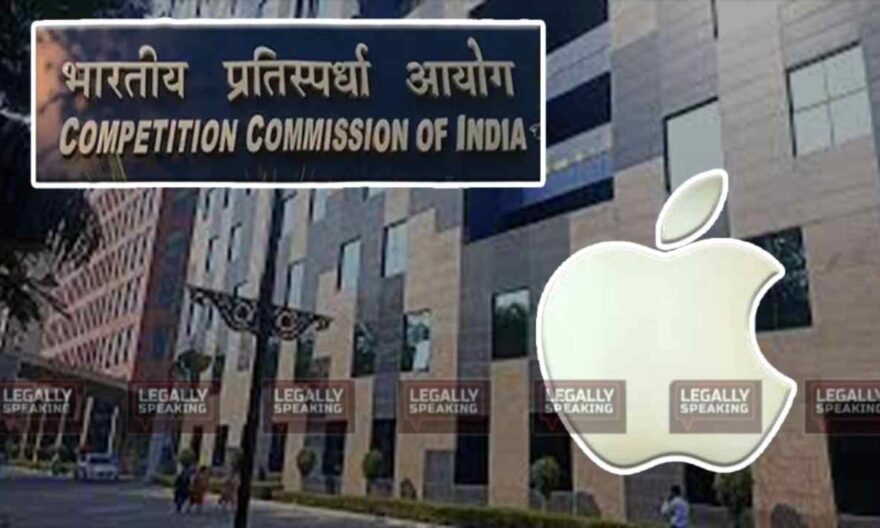
The Competition Commission of India (CCI) is currently examining an investigation report regarding Apple’s app store billing and policies. According to legal experts, the CCI’s findings and position are expected to align with its previous order against Google in a similar case.
Experts suggest that the CCI may request Apple to make modifications to its app store billing and commission policies, similar to the actions taken against Google. This could potentially require Apple to open up its closely guarded iOS operating system, commonly referred to as the ‘walled garden,’ which the tech giant has not been compelled to do anywhere in the world.
In its previous order issued on October 25, the CCI directed Google to allow third-party billing systems for payments on its app store and not restrict users to Google Play’s billing system. Google has appealed against this order.
An antitrust lawyer based in Delhi expressed that if the CCI insists on Apple allowing alternative payment methods on its app store, it would challenge Apple’s ‘walled garden’ concept. This would involve permitting others to work with their operating system, making it a challenging battle for Apple.
Industry sources informed that if the CCI imposes similar restrictions to those imposed on Google, it would contradict the core principles that Apple follows in deliberately maintaining iOS as a ‘walled garden.’ They argue that such restrictions could impact the curated user experience provided by Apple and potentially expose privacy and security vulnerabilities.
As of the time of reporting, Apple has not responded to inquiries regarding the matter.
According to a previous report by ET in February, the Competition Commission of India (CCI) had concluded its investigation into allegations of anticompetitive practices by Apple. However, the probe report was not released at that time due to the absence of a sitting chairperson. In May, Ravneet Kaur was appointed as the new chairperson, and it is anticipated that she will address the matter soon.
Gautam Shahi, a partner at Dua Associates, mentioned that the report on the Apple case could be the first significant one related to Big Tech to be issued during the tenure of the new chairperson. “It will be important especially for companies in Big Tech and ecommerce which are facing competition law/ antitrust cases and investigations across the major jurisdictions including the US, EU and India. Since competition law regulators in major jurisdictions tend to learn from each other, Apple (and other enterprises in this segment) will be concerned about the kind of precedent that the CCI may set.”
“Penalty, if any, should not be of significant concern for Apple, but any directions regarding behavioural modification may have a significant impact on business strategies and revenue.”
The CCI initiated the investigation into Apple’s policies in December 2021 after allegations were raised by the non-profit organization Together We Fight Society. The allegations revolved around the company’s alleged high commission charges and the absence of third-party payment options on the app store. Subsequently, the Alliance of Digital India Foundation and US-based tech company Match Group also filed similar cases, which were consolidated for the investigation.
The NGO claimed that Apple mandated app developers to use its in-app payment solution for the distribution of paid digital content and charged a 30% commission, which it considered to be exorbitant compared to significantly lower fees charged by payment processors like Bill Desk, RazorPay, and CC Avenue. While the potential penalty may not be a major concern for Apple, any directions regarding behavioral changes could have a significant impact on its business strategies and revenue.
Although Google and Apple faced similar allegations, there is a fundamental difference in their operations. Google’s Android system is open-source, allowing various manufacturers to use and customize it, whereas Apple’s iOS is a non-licensable operating system exclusively used on Apple devices.
In the case of Google Play Store, the CCI determined that Google’s requirement for all payments to go through its billing platform was anticompetitive. “To get to that finding, the CCI had to define what a relevant market is to prove dominance. And this is where Apple’s fate is sealed, unless the CCI takes a different view.”
The competition lawyer explained that the CCI categorized the market for operating systems into two types: licensable and non-licensable. Apple’s iOS is the only example of a non-licensable operating system. “If you look at it as a non-licensable operating system, Apple will invariably have 100% of the market share,” the lawyer explained. “So, the definition of the market pretty much seals Apple’s fate also because then it is a monopoly and hence its insistence on use of Apple’s billing system becomes anti-competitive, following the line of reasoning in the case against Google. Once that is established, then there can’t be a different outcome in the Apple case.”




